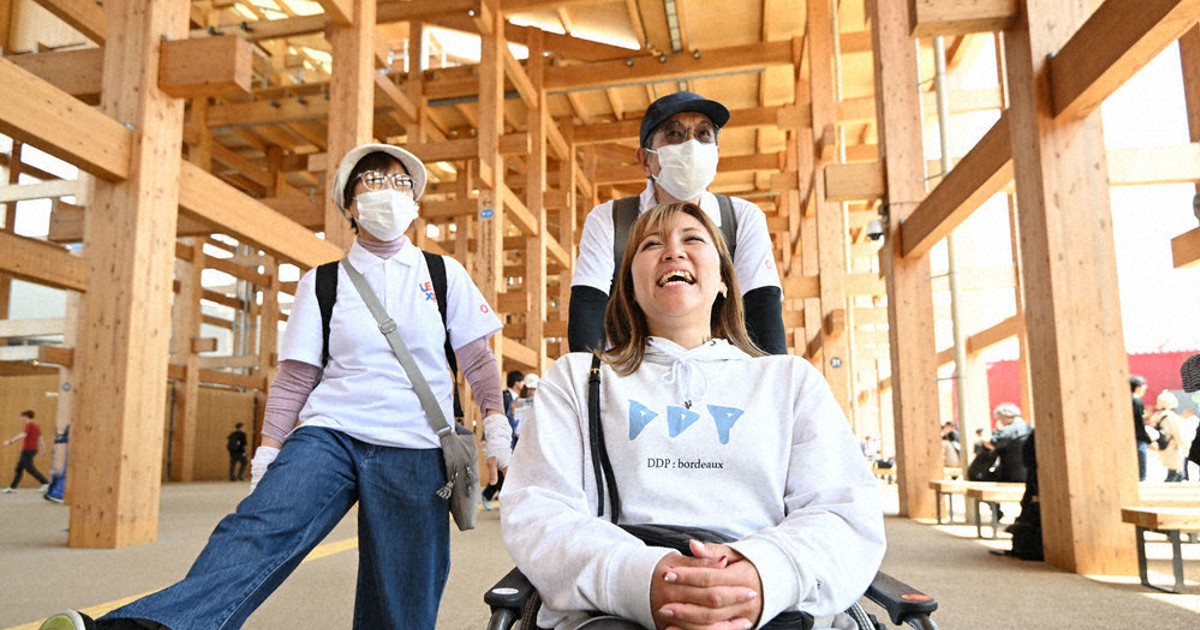Focus on EXPO: Wheelchair Accessibility for All
Making Expo 2020 Dubai a Truly Inclusive Experience
The Expo 2020 Dubai, a global spectacle showcasing innovation and culture, made significant strides in ensuring accessibility for wheelchair users. While some challenges remain in large-scale events like this, the focus on wheelchair accessibility represents a crucial step towards creating truly inclusive experiences for people with disabilities. This article delves into the successes and areas for improvement regarding wheelchair accessibility at Expo 2020, offering valuable insights for future large-scale events.
Expo 2020: A Landmark in Wheelchair Accessibility?
Expo 2020 Dubai aimed to be an inclusive event, and its commitment to wheelchair accessibility was a significant component of this goal. The organizers implemented several key initiatives:
- Extensive Ramp Systems: A vast network of ramps ensured smooth navigation throughout the sprawling Expo site, minimizing the need for strenuous inclines or challenging steps.
- Accessible Restrooms: Well-maintained and strategically located accessible restrooms were readily available across all pavilions and public areas.
- Designated Wheelchair Spaces: Many pavilions and entertainment venues offered designated wheelchair spaces, providing clear sightlines and comfortable viewing experiences.
- Accessible Transportation: The Expo's internal transportation system, including trams and shuttle buses, was designed with wheelchair users in mind, featuring ramps, lifts, and designated seating.
- Accessible Information & Signage: Clear and concise signage, available in multiple languages, guided wheelchair users effectively throughout the site. Digital information screens also provided accessible information.
Going Beyond the Basics: A Deeper Dive into Accessibility
While the aforementioned initiatives were commendable, true accessibility goes beyond the basics. Some areas for improvement included:
- Crowd Management: Despite efforts, managing crowds during peak times presented challenges for wheelchair users, sometimes creating navigation difficulties. Improved crowd control strategies are needed for future events.
- Staff Training: While some staff were highly trained in assisting wheelchair users, more comprehensive training is crucial to ensure consistent support and a positive experience for all visitors.
- Accessible Technology: While digital information was generally accessible, further integration of assistive technologies, such as audio descriptions and sign language interpretation, could enhance inclusivity.
- Sensory Considerations: Expo 2020 could have benefited from more consideration of sensory sensitivities common among some disabled individuals, reducing overwhelming stimuli in certain areas.
Lessons Learned and Future Implications for Event Accessibility
Expo 2020 Dubai provides valuable lessons for future large-scale events focusing on accessibility. The success of certain initiatives highlights the importance of:
- Proactive Planning: Early and thorough planning is critical for integrating accessibility considerations into every stage of event design and execution.
- Collaboration with Disability Organizations: Consulting with disability advocacy groups ensures that accessibility measures address the diverse needs of wheelchair users and other disabled individuals.
- Continuous Feedback Mechanisms: Implementing robust feedback systems throughout the event allows for real-time adjustments and improvements based on visitor experiences.
The Future of Inclusive Event Design
The future of large-scale events hinges on a holistic approach to accessibility. This encompasses not only physical accessibility but also cognitive and sensory considerations. By learning from the successes and challenges of Expo 2020, future events can aspire to become truly inclusive spaces where everyone, regardless of ability, can participate fully and enjoy the experience.
Call to Action: Share your thoughts and experiences on wheelchair accessibility at large-scale events in the comments below! Let's continue the conversation and work towards creating more inclusive events for all.
